
The regions St. George's offers busing from are:
How we see St. George's School of Montreal
Compare with:
How St. George's School of Montreal sees itself
"A leader in progressive education since 1930, St. George's fosters a love of learning in each student. Our K-11, gender-inclusive school offers expert teachers, small class sizes, a bilingual elementary school, and a research-based experiential curriculum promoting student-centered learning within a rich and supportive academic environment. A St. George's education is rooted in the profound respect for the individual learner, their wellbeing, and a commitment to each student discovering their passion and purpose."



Elementary and High School basketball teams are among many sports offered.
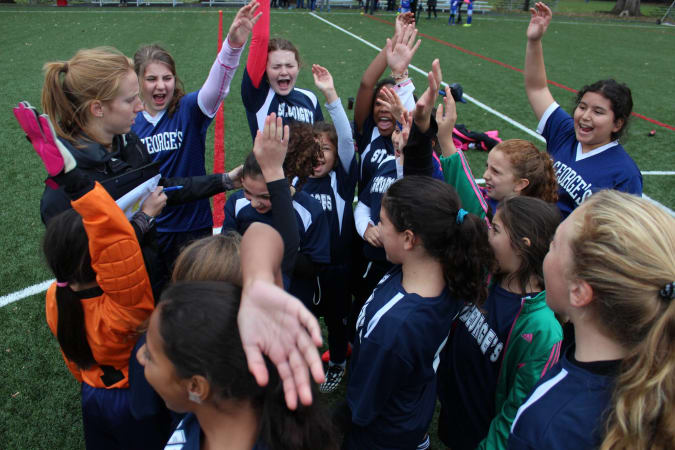
Sports are seen as an opportunity to advance health, wellness, and character.



The culture among students is warm, supportive and encouraging.
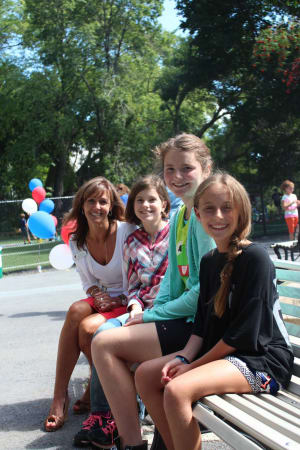
Our Elementary School Head with students on their first day of the year.
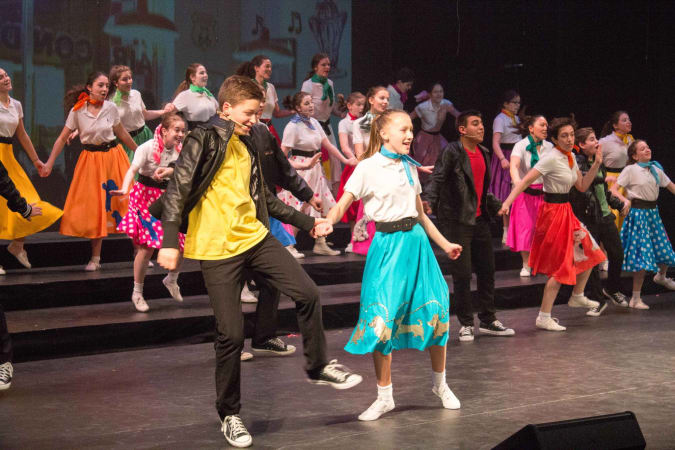
We offer exceptional opportunities in visual and performing arts.



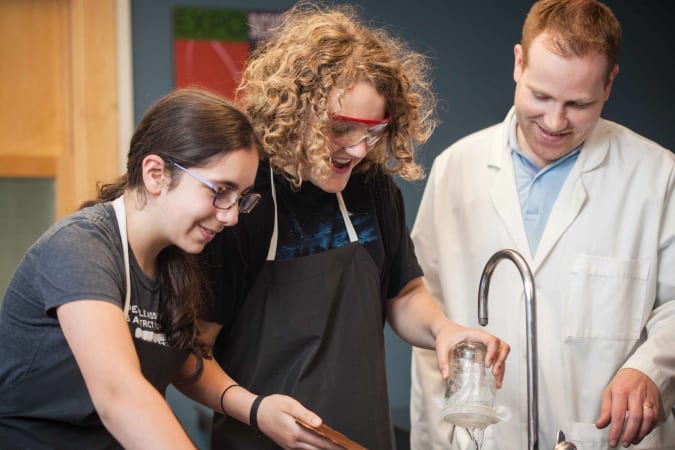
Students take a lead in learning

Our kids love learning!

Our students are curious, critical thinkers.



Top-down influence on the school’s direction and tone
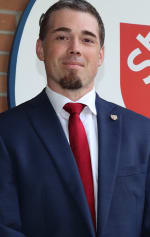
Michael O'Connor, Head of School
Every school aspires to provide the knowledge and skills that are required to transform their students into accomplished and confident adults. To a great extent, this transformation is accomplished by the timely and caring interventions of their teachers.
At St. George’s, we believe that our programs provide appropriate challenges and engagement, even as students begin their first years of learning. To fulfill this promise, we offer differentiated approaches and programs in all core disciplines. As our students mature and gain confidence, our curriculum offers additional challenges through enriched, accelerated, and ‘Advanced Placement’ classes. Students are offered a rich assortment of options so that they may experience new and exciting domains of development in areas such as Marine Biology, Engineering, Psychology and Media, as well as the opportunity to pursue co-curricular options such as Biomimicry, Jazz Band, Glee, Stage Crew, Robotics and Debating.
At St. George’s, we believe that education is best served by establishing a deep and authentic relationship with each student, as a confirmation of our unwavering belief in each child’s unique passions and aspirations. We see our role as enablers, unleashing the amazing talents that lie within each child. To provide a fertile terrain for personal and academic growth, this process requires trust and validation from peers and adults.
We believe that teaching is an intuitive art that is further enhanced through our greater understanding of each learner’s character, and the development of their self-awareness, their empathy for others, their perseverance and their sense of optimism- all of which provide the foundation for an enriching life. At St. George’s, we measure our success by the degree of our students’ aspirations to lead a fulfilled life.
We believe that education is a real-time experience and that it happens best through real-life inquiries and projects where each student becomes an agent for change, both locally and amongst extended communities, and where the exploration of one’s true self becomes a profound and rewarding process. We also believe that as our students discover themselves, and as they explore the world around them, their ability to make sense, to create, to self-regulate and to become solid life-long learners and transformation leaders will naturally follow.
Based on the child-centered approach of John Dewey, St. George’s School of Montreal was founded in 1930 by an enlightened group of progressive parents and educators from Sir George Williams (Concordia) and McGill Universities. Our commitment to the individual growth and development of each child continues to the present day. We are always pleased to welcome prospective parents who wish to learn more as to how our unique, time-tested approach supports each child on a personal and academic level.
THE OUR KIDS REPORT: St. George's School of Montreal
Next steps to continue your research:
Continue researching St. George's School of Montreal with OurKids.net, or visit school website.